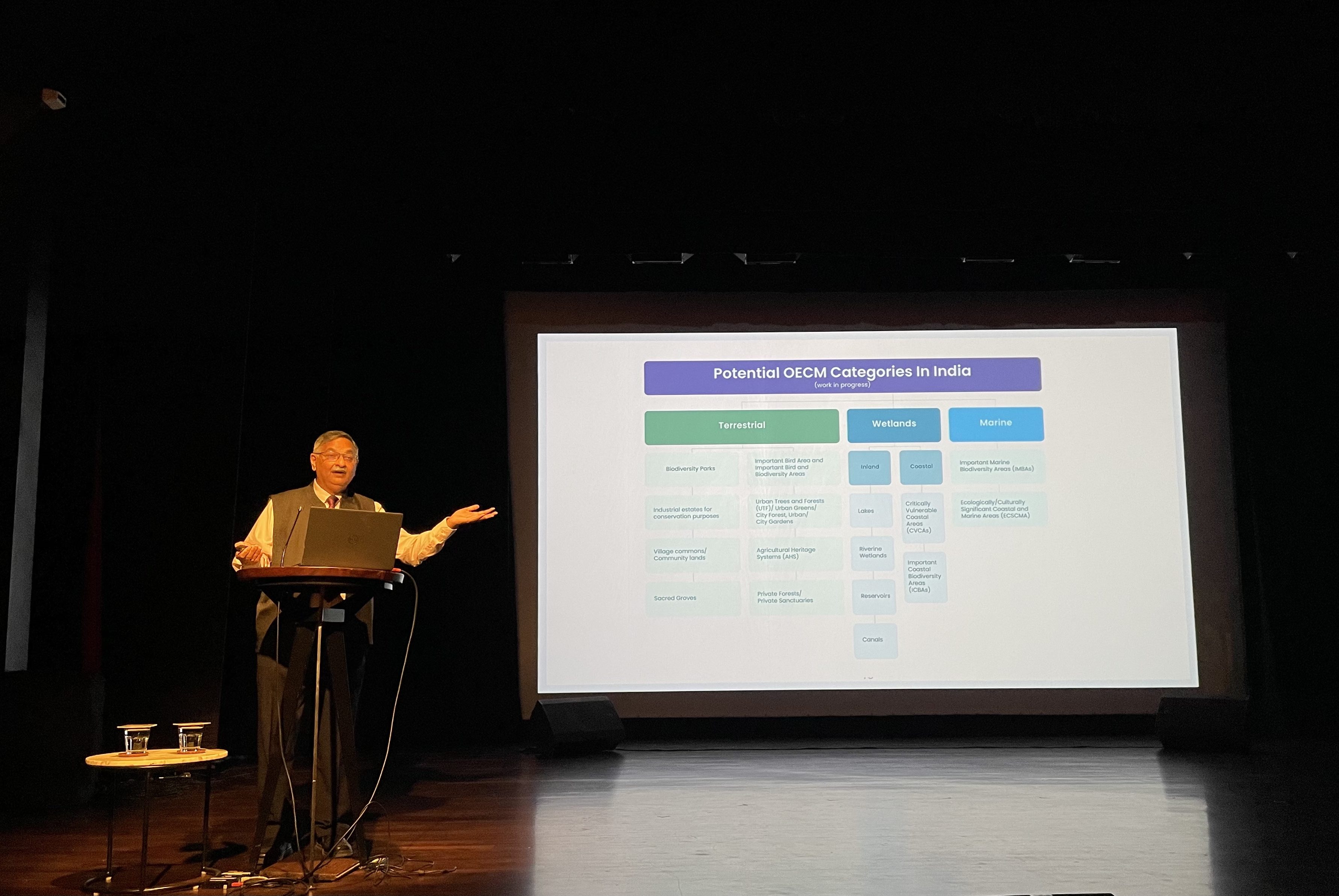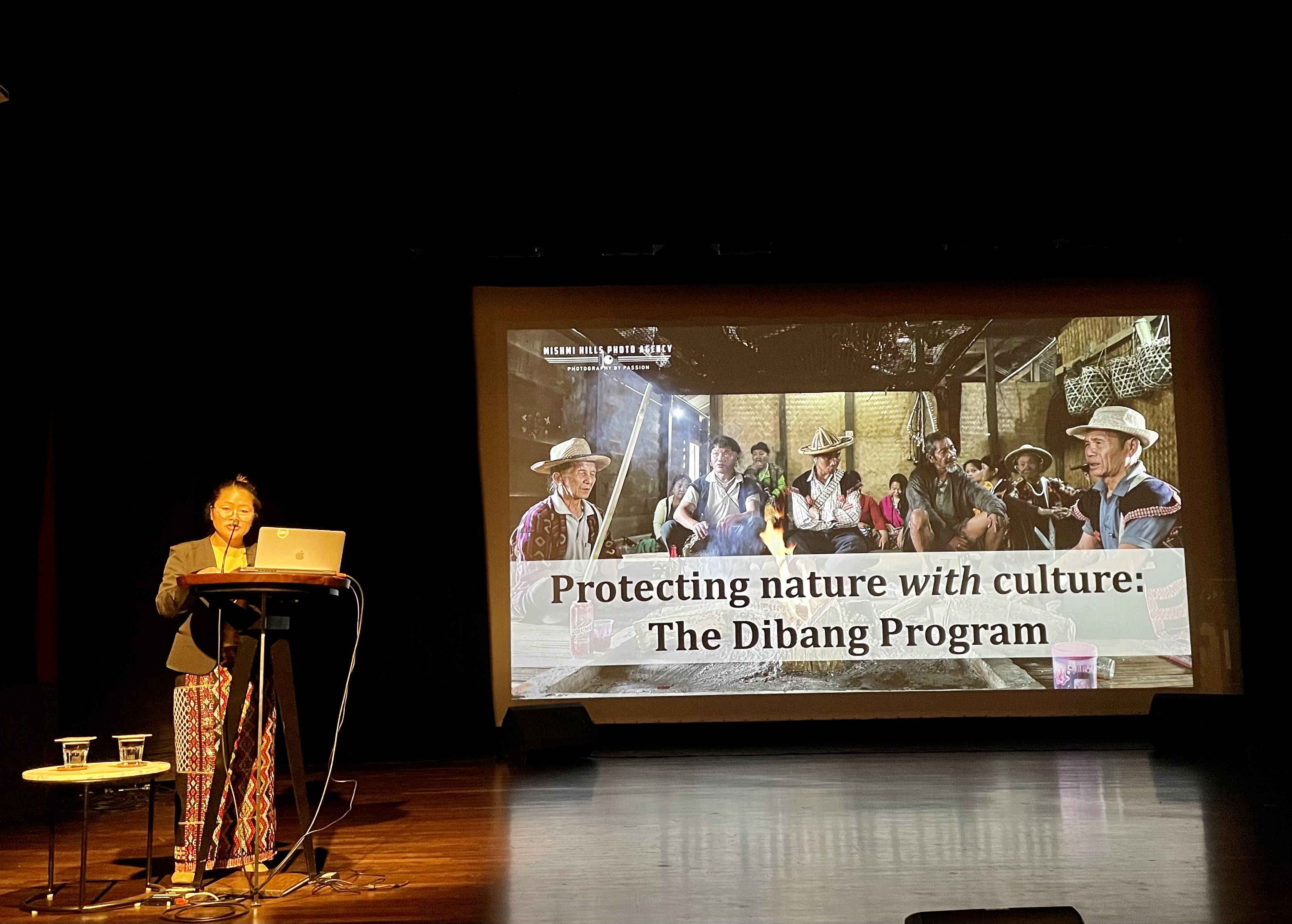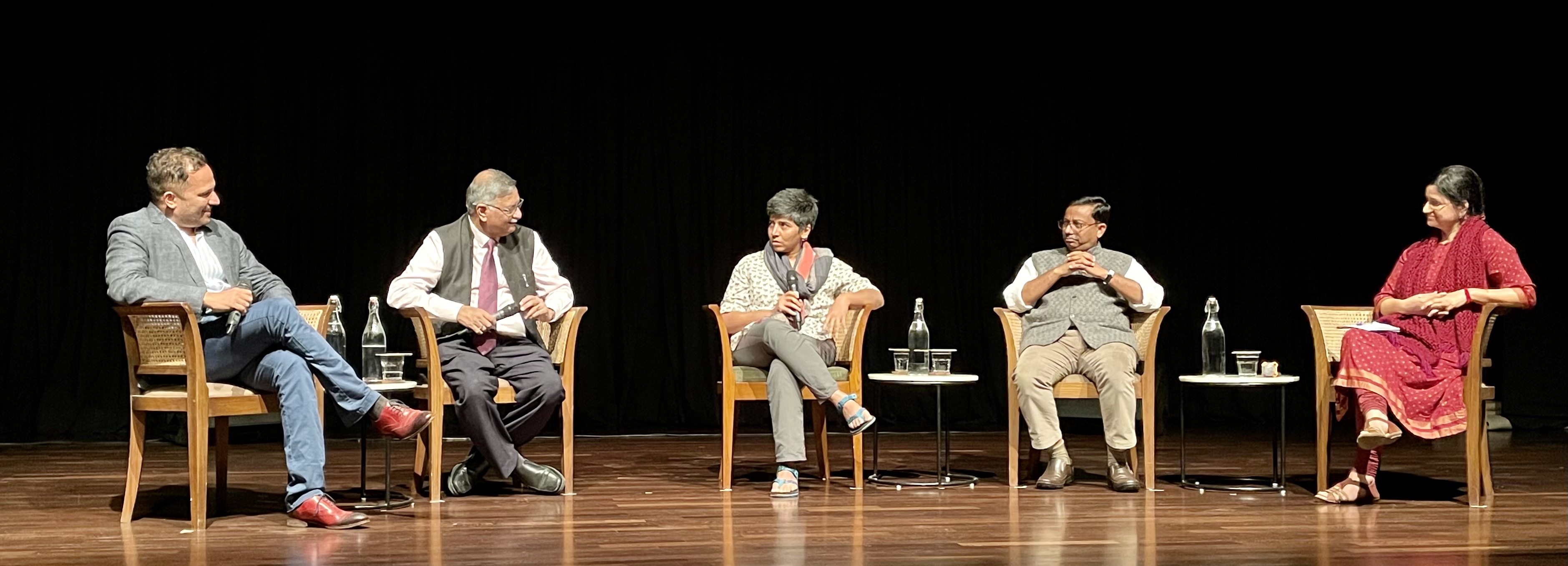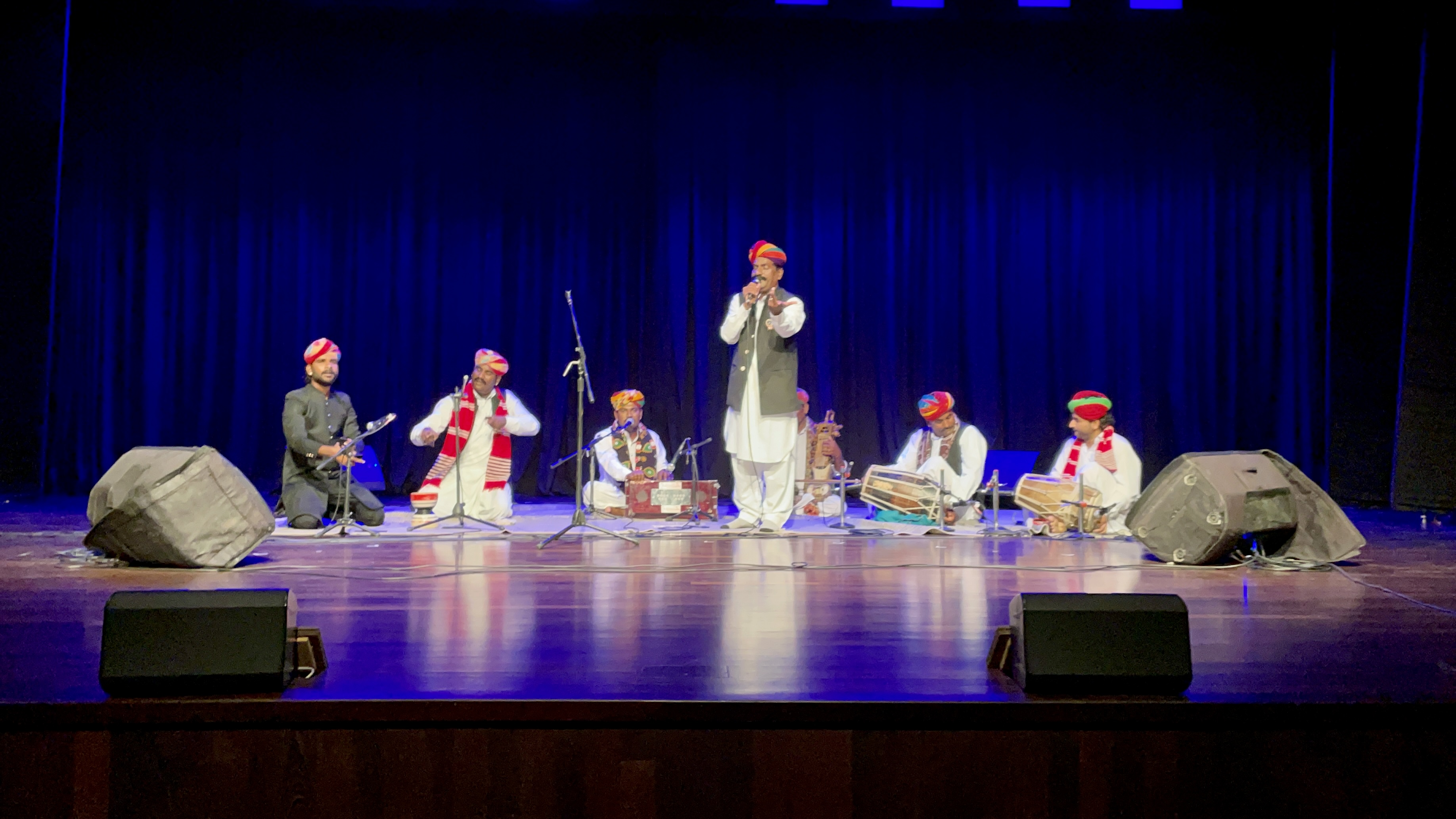On the evening of the 7th of October 2022, the Wildlife Conservation Society - India, with support from Rohini Nilekani Philanthropies and Rural India Supporting Trust (RIST), hosted 'Nature Without Borders' at the Bangalore International Centre. This event brought together conservation experts from diverse geographies, members of community-conserved areas, scholars, and folk artists to bring about dialogue on inclusive approaches to conservation. The theme was centred on exploring the idea of 'Other effective area-based conservation measures' (OECMs), an approach to conservation that is separate from the traditional focus on Protected Areas such as National Parks and Wildlife Sanctuaries. With the global initiative to protect 30% of the planet’s land and sea by 2030, OECMs have become highly relevant today.
The keynote talk at the event was delivered by Dr. Vinod B. Mathur, Former Chairperson of the National Biodiversity Authority. A captivating performance by the world-renowned musical group led by Ustad Gazi Khan Barna concluded the evening. The event was divided into four main segments:
The journey of implementing OECMs in India: A talk by Dr V.B. Mathur

5.02% of the country is under four categories within the protected area framework. Through his keynote speech, Dr. Mathur highlighted the paramount requirement of space in conservation, “Conservation needs space; every animal and plant needs space to thrive”. Dr. Mathur shared that OECMs aid in occupying and designating more areas for conservation. In the speech, Dr. Mathur urged scientific institutions to initiate a pan-India OECM project for India to effectively contribute to achieving the 30x30 High Ambition Coalition (HAC). He also stressed that we must move beyond the species-centric approach to conservation. “We need to consider the importance of spaces that contribute to the preservation of soil, moisture and sequestration of carbon as well.” Notably, Dr. Mathur shared his insight on the potential OECM categories in India, which included notifying industrial estates, canals and reservoirs, and important marine biodiversity areas, among others, for conservation purposes.
Living with Forests: Rights-based biocultural conservation in Dibang Valley, Arunachal Prades

Led by members of the Dibang team, a group of scholars and members of the Idu Mishmi indigenous community, this segment explored the team’s extensive research on Dibang valley’s biological and cultural diversity. "Culture and nature are inseparable; to protect culture, we need to protect nature, and vice versa", shared Achili Mihu, founding member of the Dibang team. The team also explored the various challenges they face, such as external interventions and modernisation.
Panel discussion: Exploring inclusive frameworks for conservation in India
 (From right) Dr. Aaron Savio Lobo, Dr V.B. Mathur, Aarthi Sridhar, Aman Singh, Neema Pathak-Broome
(From right) Dr. Aaron Savio Lobo, Dr V.B. Mathur, Aarthi Sridhar, Aman Singh, Neema Pathak-Broome
The panel discussion featured community-based conservation experts from India’s varied land and seascapes. Alongside Dr. Mathur, Aarthi Sridhar (Founder Trustee, Dakshin Foundation), Aman Singh (Founder, KRAPAVIS), and Neema Pathak-Broome (Kalpavriksh) participated in the panel, which was moderated by Dr. Aaron Savio Lobo (Senior Consultant, WCS-India). Through the discussion, the participants debated the feasibility of OECMs, explored inclusive approaches to conservation and the challenges faced, and exchanged perspectives from their experiences.
Celebrating the Thar desert and Orans of Rajasthan: The Manganiyars of the desert

As the evening came to an end, Bangalore International Centre’s hall resonated with the tunes of musicians led by world-renowned artist Ustad Gazi Khan Barna, who hails from the Barna village in Jaisalmer. The group showcased a performance filled with passion, melody and crisp rhythms while celebrating the diversity of Rajasthan and its Orans.
Beyond people from the conservation community, the event witnessed strong participation from people from various backgrounds, including wildlife photographers, web developers, copywriters, artists, and students. Many also engaged in formal and informal discussions with the panellists and musicians. “It was an exciting and illuminating set of talks and discussions on an integrated and comprehensive approach to conservation. There is a mix of hope and cynicism, but it is a way forward. I wish for more lay citizens to know about OECMs”, shared Ramakrishnan Krishnan, an advertising expert and part-time wildlife photographer.